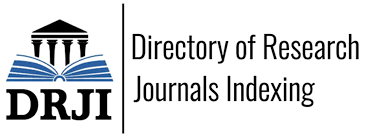Buddhist-Muslim relationship through local wisdom as a form of multicultural education
DOI:
https://doi.org/10.18326/ijoresh.v3i2.221-247Keywords:
Buddhism, Islam, Local wisdom, Multicultural educationAbstract
While not particularly prominent in broader interfaith dialogues, the Buddhist-Muslim relationship is a tangible reality in the Kaloran community, Temanggung. This qualitative study aims to explore the Buddhist-Muslim relationship through the local wisdom that has developed in the community. Data was collected through observation, interviews, documentation, and focus group discussions (FGD). The collected data was then subjected to descriptive synthesis analysis. The relationship between Buddhist and Muslim communities can be fostered through local wisdom as part of implementing living religious values. This local wisdom is divided into three thematic groups: 1) local wisdom without text, in the form of expressions or wisdom that serve as principles and guidelines for the life of a multicultural society; 2) local wisdom in the form of ritual symbols that serve as a medium for dialogue in a multicultural society; and 3) local wisdom in the form of performing arts that serve as a medium for dialogue in a multicultural society. Based on the sociology of religion approach and lived religion, local wisdom is part of the flexible media used by the Buddhist community to maintain relations with Muslims. This local wisdom serves as a medium for relations in order to maintain the harmonious life of a multicultural society.
References
Akova, S., & Kantar, G. (2021). Globalization in the context of multiculturalism and ethnicity in the Western Balkans and intercultural communication. Journal of Public Affairs, 21(2). https://doi.org/10.1002/pa.2185
Al Qurtuby, S. (2016). Religious Violence and Conciliation in Indonesia: Christians and Muslim in Moluccas. New York: Roudladge.
Al Qurtuby, S & Lattu, I. Y. M. (2019). Tradisi dan Kebudayaan Nusantara. Semarang: eLSA Press.
Ammerman, N. T. (2015). Lived religion. Robert Scott y Stephen Kosslyn (comp.), Emerging Trends in the Social and Behavioral Sciences. Hoboken y New Jersey: John Wiley & Sons, 1-8.
Arsal, T., Setyowati, D. L., & Hardati, P. (2023). The inheritance of local wisdom for maintaining peace in multicultural society. Journal of Aggression, Conflict and Peace Research, 15(2), 137-151. https://doi.org/10.1108/JACPR-01-2022-0673
Baihaqi, M. (2021). Implementation of multicultural education in Indonesia. EDUTEC: Journal of Education and Technology, 4(3), 504-526. https://doi.org/10.29062/edu.v4i3
Dana, I. W., & Arista, I. M. (2014). Melacak Akar Multikulturalisme di Indonesia melalui Rajuatan Kesenian. Cipta Media: Yogyakarta.
Darmadi, H. (2018). Educational management based on local wisdom (descriptive analytical studies of culture of local wisdom in west kalimantan). Journal of Education, Teaching and Learning, 3(1), 135-145.
Friskadewi, N. (2019). Keeping the Tradition of Honoring Ancestors (Study of the Traditions of Sadran Gedhe in Gumelem Village, Susukan, Banjarnegara). In Proceedings of First International Conference on Culture, Education, Linguistics and Literature.
Geertz, C. (1993). The Interpretation of Cultures: Religion as a Cultural System. USA: Fontana Press.
Geertz, C. (1960). The Religion of Java. USA: The Free Press of Glencoe.
Geertz, C. (1971). Islam Observed: Religious Development in Marocco and Indonesia.USA: The University of Chicago Press.
Guilherme, M., & Dietz, G. (2015). Difference in diversity: multiple perspectives on multicultural, intercultural, and transcultural conceptual complexities. Journal of Multicultural Discourses, 10(1), 1-21. https://doi.org/10.1080/17447143.2015.1015539
Hasyem, M. (2022). Community Development Based on Local Wisdom. In 2nd International Conference on Social Science, Political Science, and Humanities (ICoSPOLHUM 2021) (pp. 137-142). Atlantis Press.
Knibbe, K., & Kupari, H. (2020). Theorizing lived religion: introduction. Journal of contemporary religion, 35(2), 157-176. https://doi.org/10.1080/13537903.2020.1759897
Kristiyanto, A. E & Chang, W. (2014). Multikulturalisme Kekayaan dan Tantangan di Indonesia. Jakarta: Obor.
Lattu, I. (2012). Culture and Christian-Muslim Dialogue in Moluccas-Indonesia, Interrelegious Insight: A Journal of Dialogue and Engagement, 10(1) 45-52.
Lattu, I. (2015). Disertation: Orality and Intereligious Relationship: The Role of Collective Memory in Christian-Muslim Engadments in Maluku, Indonesia. Bercaley, Califonia: ProQuest.
Njatrijani, R. (2018). Kearifan Lokal dalam Persepktif Budaya Kota Semarang. Gema Keadilan, 5(1), 16-31. https://doi.org/10.14710/gk.2018.3580
Nyhagen, L. (2017). The lived religion approach in the sociology of religion and its implications for secular feminist analyses of religion. Social Compass, 64(4), 495-511. https://doi.org/10.1177/0037768617727482
Parekh, B. (2018). Rethinking Multiculturalism: Keberagaman Budaya dan Teori Politik. Yoyakarta: Kanisius.
Pesurnay, A. J. (2018). Local wisdom in a new paradigm: Applying system theory to the study of local culture in Indonesia. In IOP Conference Series: Earth and Environmental Science. 175 (1).
Purwadi. (2005). Upacara Tradisional Jawa: Menggali Untaian Kearifan Lokal. Yogyakarta: Pustaka Pelajar.
Putri, F. K., Noven, H. J., Nurcahyati, M., Irfan, A. N., Septiasari, A., Batoro, J., & Setyawan, A. D. (2022). Local wisdom of the Tengger Tribe, East Java, Indonesia in environmental conservation. Asian Journal of Ethnobiology, 5(1). https://doi.org/10.13057/asianjethnobiol/y050103
Razick, A. S., Long, A. S., Ismail, K. H., & Salleh, K. (2016). Post-Tension Relationship between Buddhists and Muslims in Sri Lanka. Research on Humanities and Social Sciences, 6(3), 107-117.
Sleeter, C. E. (2018). Multicultural education past, present, and future: Struggles for dialog and power-sharing. International Journal of Multicultural Education, 20(1), 5-20. https://doi.org/10.18251/ijme.v20i1.1663
Suranto. (2015). Analisis Kearifan Lokal Sadranan Kuburan pada Integritas Kehidupan Umat Beragama. Semarang: STAB Syailendra.
Suranto, S. (2019). Manifestasi Kearifan Lokal sebagai Akar Nasionalisme Pancasila pada Dialog Lintas Agama di Kaloran, Temanggung. Jurnal Pencerahan, 11(2), 83–98. https://doi.org/10.58762/jupen.v11i2.6
Suryana, Y., & Rusdiana. 2019. Pendidikan Multikultural: Suatu Upaya Penguatan Jati Diri Bangsa, Konsep, Prinsip, dan Implementasi. Bandung: Pustaka Setia.
Titaley, J. A. (2013). Religiositas di Alinea Tiga: Pluralisme, Nasionalisme dan Transformasi Agama-Agama. Salatiga: SWCU Press.
Waston., & Suwartini, S. (2022). Multicultural and multidisciplinary Islamic religious education and its significance for nurturing religious moderatism. IJoReSH: Indonesian Journal of Religion, Spirituality, and Humanity, 1(1). https://doi.org/10.18326/ijoresh.v1i1.76-98
Wibowo, A., & Gunawan (2015). Pendidikan Karakter Berbasis Kearifan Lokal di Sekolah. Yogyakarta: Pustaka Pelajar.
Yahya, A. S. (2017). Ngaji Tolerasni. Jakarta: PT Elex Media Kamputindo Kompas-Gramedia.
Yusuf, I. (2005). Dialogue between Islam and Buddhism through the Concept of Tathagata and Nur Muhammadi. International Journal of Buddhist Thought & Culture. 5, 103-114.
Zreik, M. (2024). Tibetan Buddhism: artistic, literary, and social legacy. IJoReSH: Indonesian Journal of Religion, Spirituality, and Humanity, 3(1), 25-52. https://doi.org/10.18326/ijoresh.v3i1.25-52
Downloads
Published
How to Cite
Issue
Section
License
Copyright (c) 2024 Suranto Suranto, Izak YM Lattu, Tony Tampak, Suwarto Suwarto

This work is licensed under a Creative Commons Attribution-ShareAlike 4.0 International License.
Copyright
Authors who publish with Indonesian Journal of Religion, Spirituality, and Humanity agree to the following terms:
- Authors retain copyright and grant the journal right of first publication with the work simultaneously licensed under a Creative Commons Attribution License (CC BY-SA 4.0)that allows others to share the work with an acknowledgement of the work's authorship and initial publication in this journal.
- Authors have the right to enter into separate, additional contractual arrangements for the non-exclusive distribution of the journal's published version of the work (e.g., post it to an institutional repository or publish it in a book), with an acknowledgment of its initial publication in this journal.
- Authors are permitted and encouraged to post their work online (e.g., in institutional repositories or on their website) prior to and during the submission process, as it can lead to productive exchanges, as well as earlier and greater citation of published work.
Licensing
This work is licensed under a Creative Commons Attribution-ShareAlike 4.0 International License.









